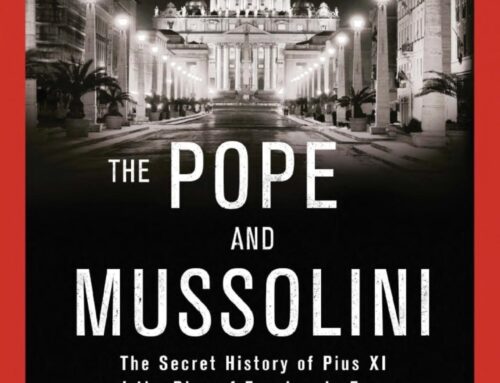Dennis Ross, a senior United States policy makers through four recent
Well, yes, as a matter of fact; how about the diplomat who has devoted his professional life to trying to bring about that peace, who has tirelessly toiled in the face of such grinding futility? This is surely not how Dennis Ross, one of the United States’ chief Middle Eastern policy makers through four recent administrations, would characterize his career, but it was with a degree of morbid curiosity that I turned to his latest book, “Doomed to Succeed: The U.S.-Israel Relationship From Truman to Obama.”
Ross, who served most notably as President Clinton’s special envoy to the Middle East, has produced a work that is simultaneously comprehensive, quite fair-minded and somewhat ponderous. As the subtitle suggests, this is not a history
‘Doomed to Succeed,’ by Dennis Ross – The New York Times 12/19/15, 2:41 PM
of Arab- Israeli peace efforts per se, but rather of the evolution of Israeli-American diplomatic relations — except these two matters are so inextricably linked as to pose an almost semantic difference. Because of that linkage, and because of American fears of repercussions from Arab nations should they appear too cozy with Israel, those relations have not always been as close as one might assume. While President Truman famously recognized Israel just 11 minutes after its declaration of statehood in 1948, he and his immediate successors assumed a decidedly cautious approach. It wasn’t until 1962, 14 years after Israel’s founding, that the Kennedy administration approved the first arms sale to the Jewish state — and purely defensive weapons at that — and not until 1964 that an Israeli prime minister was accorded the honor of an official White House visit. While Ross enumerates a number of factors leading to the steady strengthening of ties between the two nations, certainly a crucial one was the deepening of the Cold War and the Balkanization of the region into rival Soviet and American camps.
Weighing on that closeness, however, was the enduring hostility of Israel’s Arab neighbors, some of them also American allies, and central to that hostility was “the Palestinian Question.” Forge a peace between the Israelis and the Palestinians, so many in successive administrations believed, and American influence in the region would blossom; let the problem fester and risk Arab wrath — and a cutoff of their oil. In “Doomed to Succeed,” Ross chronicles in exhaustive detail the many initiatives and proposals and road maps generated over the years, mostly by American diplomats, in hopes of attaining that peace.
Despite his diffident style, one is able to glean Ross’s villains and heroes in these efforts. Perhaps his foremost villain is Yasir Arafat, the P.L.O. chairman who, in the waning days of the Clinton administration, walked away from the best deal ever offered to the Palestinians because he was unable to make the transition from revolutionary leader to statesman. A close second appears to be Yitzhak Shamir, the Israeli prime minister whom President George H.W. Bush pegged as an unscrupulous liar, a characterization that, from the evidence presented here, seems justified. For sheer coldblooded cunning, however, it’s hard to top America’s own Machiavelli, Henry Kissinger. In 1969, with President Nixon and Secretary of State
William Rogers eager to pursue regional peace efforts in the wake of the 1967 Six- Day War, the president’s national security adviser vigorously argued that the United States do nothing of the sort lest the Soviet Union share credit. “The prerequisite of effective Middle East diplomacy,” Kissinger wrote, “was to reduce the Soviet influence so that progress could not be ascribed to its pressures.” The ensuing diplomatic paralysis helped provoke the 1973 Yom Kippur War.
On the flip side, Ross displays enormous admiration for the Israeli prime minister Yitzhak Rabin, the former hard-line general who, perhaps more than any other Israeli leader, genuinely sought a lasting settlement with the Palestinians, only to be assassinated for his troubles. Joining Rabin in the good-guy camp are the first President Bush and President Clinton, the former for what Ross sees as his principled forthrightness, the latter for the extraordinary energy — and political capital — he expended in his own peace effort. The writer also reveals a soft spot for Bush’s secretary of state James Baker, just about the only person in these pages with the good sense to lose his temper periodically at the endless haggling and nit- picking debate he’s forced to endure. In one particularly amusing anecdote, Ross recounts a meeting he and Baker held on the eve of an international conference, at which a Palestinian delegation raised a series of last-minute issues. “With you people, the souk never closes, but it is closed with me,” Baker thundered, before leaving the room. “Have a nice life.”
Unfortunately, such moments are few and far between in “Doomed to Succeed,” and while the detailed ins and outs of the work that went into organizing this multilateral summit conference or that Memorandum of Agreement might be of interest to the Middle Eastern specialist, the lay reader is likely to feel a bit numbed.
Then again, the specialist may be Ross’s intended audience, considering that much of the book’s accumulation of detail is directed at buttressing his two main thesis points. First, Ross argues, despite great fretting by American diplomats over the decades, neither the American-Israeli relationship in general, nor the Palestinian Question in particular, has ever been of paramount concern to the governments of the Arab world when it comes to their own relations with the
United States; instead, the decisive factor has always been what suits their own, more parochial interests. Because of this (and here is Ross’s second thesis point), American fears of Arab repercussions for their closeness to Israel have rarely been realized, just as the expected rewards for adopting a more “pro-Arab” stance have been consistently lacking.
There is certainly a great deal of truth to this argument, but it also seems a self- evident one. Surely it is obvious to all by now that many Arab leaders have used Israel as a convenient whipping boy over the years — both to channel domestic unrest and to maintain their Pan-Arab street cred — but isn’t it just as obvious that, when push comes to shove, those leaders will choose their own national interests over those of the Palestinians? As for the United States suffering neither the worst that is threatened nor reaping the best that is promised from the Arab nations, isn’t that also simply in the nature of geopolitics?
So intent is Ross on making this point — he returns to it in his discussion of every presidential administration going back to Truman — that he seems to rather miss its Israeli corollary, one made plain by his own evenhanded reporting: that Israel tends to pay heed to American administrations that stand up to it and to run roughshod over those that don’t. After all, it was Jimmy Carter, still denounced by many as the most “anti-Israel” president in American history, who helped force the first peace treaty between Israel and an Arab nation, Egypt. By contrast, Ronald Reagan, Carter’s successor and a man who talked of America’s enduring moral commitment to Israel, was swiftly blindsided by a series of Israeli unilateral actions about which his administration had no warning: the bombings of the Osirak nuclear facility in Iraq and the P.L.O. headquarters in Beirut in 1981, and the invasion of Lebanon and siege of Beirut in 1982.
In his conclusion, Ross offers up one tangible suggestion for how an Israeli government might effect some confide nce- building to show the world it genuinely wants compromise: It could refrain from adding to or building new settlements in the West Bank except in those areas likely to be annexed to Israel in any peace deal. This seems a slender reed to pin one’s hopes on — but, as Middle East negotiators have doubtless been muttering for decades, it’s better than nothing.
Except it is to nothing that it will almost surely lead. That is because at the heart of the Palestinian Question is a conundrum no American administration has been willing or able to unravel. The Palestinians, seeing themselves as the aggrieved party, have never taken the initiative in offering up peace terms, and whatever the Israelis have offered has never been enough. For their part, and despite the lip service paid to their American allies, most Israelis see little to be gained and much to be risked in a peace agreement and are seemingly content with the status quo, a contentment increased by the concrete wall as high as 26 feet that now separates them from their Palestinian neighbors. As for the Americans, the traditional overseers of this contest, their tepid response to the settlements issue adds constant fuel to Palestinian rage — and obstinacy — while their military support further enhances Israel’s sense of security, giving it even less motive to negotiate. As James Baker might say, “Have a nice life.”



